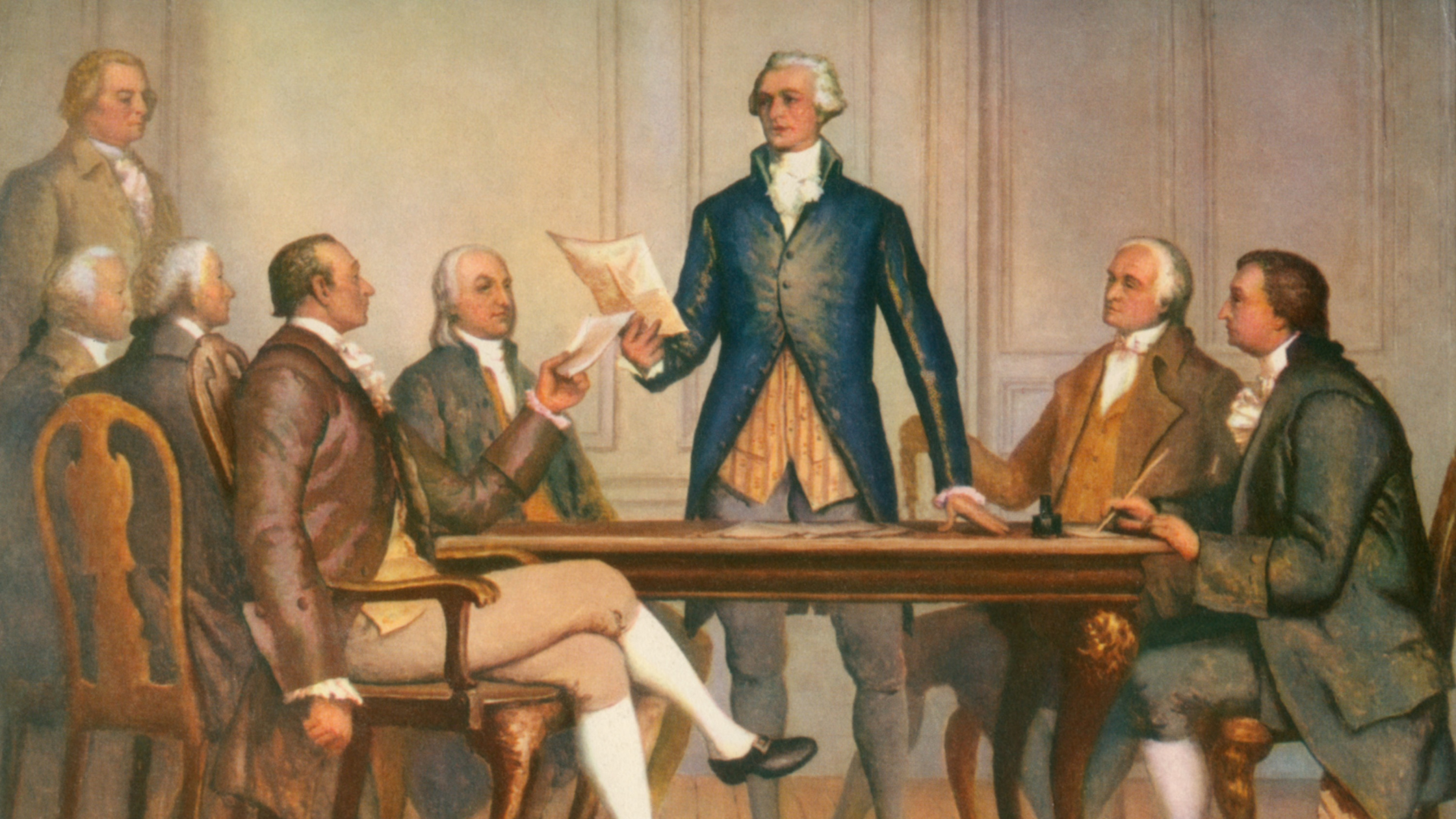The rise of revisionist history, particularly the claim that America was founded as a Christian nation, is deeply alarming and poses a significant danger to our democracy.
It was abundantly clear from the start of our country’s beginning that the founding fathers intended for our nation to be a place where no religion should be favored by the government over another. However, since politicians and citizens cannot stop lying, like doing things such as posting misinformed quotes, and continue to spread the falsehood that the US was founded as a Christian nation, we need to talk about this.
- But first, I want to say, I think it is important to question several things when discussing our nation’s founding:
- Whether we agree with the framers’ original intentions or interpretation of how government should act or what they should allow/not allow.
Should we even care about what they had to say at all?
Let’s start with the latter. With all things, no, we absolutely should not care about every desire the framers did have. The behavior of some of our founding fathers is littered with things like having enslaved persons, trafficking, mistresses, violence, and more. There is not some unlimited free pass of tolerance that is deserving to be extended to our framers. Absolutely not.
However, the argument we are looking at is the framers’ original intention of the separation of church and state in our government. I think in this case, we should listen to their warnings because I think they may have hit this one on the nose. There is plenty of evidence to suggest the framers were incredibly in favor of an impenetrable wall between church and state.
Let’s start with the first amendment in our constitution
Congress shall make no law respecting an establishment of religion, or prohibiting the free exercise thereof; or abridging the freedom of speech, or of the press; or the right of the people peaceably to assemble, and to petition the Government for a redress of grievances.
The framers made it first priority in our constitution to make it known that everyone in our nation is free from the government interfering on what religion we choose to practice, or whether we choose to follow a religion at all.
It is important to note that The Federalist Papers rarely discussed or debated freedom of religion, not because they didn’t care, but because there was a lack of concern on the subject. They believed that total religious liberty was the correct choice, and even attempting to test it legally could lead to the establishment of churches at a national level. In their eyes, the matter had been settled.
Additionally, let’s see some founding fathers quotes on their feelings about religion

“But our rulers can have authority over such natural rights only as we have submitted to them. The rights of conscience we never submitted, we could not submit. We are answerable for them to our God. The legitimate powers of government extend to such acts only as are injurious to others. But it does me no injury for my neighbour to say there are twenty gods, or no god. It neither picks my pocket nor breaks my leg. … Reason and free enquiry are the only effectual agents against error.”
– Thomas Jefferson, Notes of the State of Virginia, Query XVII
Thomas Jefferson was saying that our government’s role is to help protect against harm from others and each other, not to control our internal thoughts or beliefs. He is saying that it does not injure him in any way if someone in his community has different religious beliefs than him. Using reasoning and asking questions is the best way to correct mistakes or find truth.
“Thirteen governments [of the original states] thus founded on the natural authority of the people alone, without a pretence of miracle or mystery, and which are destined to spread over the northern part of that whole quarter of the globe, are a great point gained in favor of the rights of mankind.”
— John Adams, “A Defence of the Constitutions of Government of the United States of America,” 1787
Here, John Adams is praising the formation of thirteen state governments in America, which were established based on the will of the people themselves, without falling back on claims of miraculous events or mysteries. Adams views this as a significant step forward for human rights because it is tangible proof that governments can be founded on the principles of democracy and the will of the people, rather than being created on divine right or some sort of spiritual authority.
“Because we hold it for a fundamental and undeniable truth, that Religion or the duty which we owe to our Creator and the manner of discharging it, can be directed only by reason and conviction, not by force or violence.” The religion then of every man must be left to the conviction and conscience of every man; and it is the right of every man to exercise it as these may dictate.”
– James Monroe, Address to the Virginia General Assembly, June 20, 1785
James Monroe is saying here that religious beliefs should be guided by an individual’s thoughts and not by force in any way. He feels that a person’s religion is a matter left between themselves and their conscience.
“It is true, we are not disposed to differ much, at present, about religion: but when we are making a constitution, it is to be hoped, for ages and millions yet unborn, why not establish the free exercise of religion, as a part of the national compact.”
– Richard Henry Lee, Letters of the Federal Farmer, 1788
Richard Henry Lee is saying here that while their current religions are not very different from one another, they are creating a constitution for future generations. Therefore, it is important to include religious liberty as part of the national promise of the US.
“As the union between spiritual freedom and political liberty seems nearly inseparable, it is our duty to defend both.”
– Thomas Paine “Common Sense” January 1776
Thomas Paine, in the quote, describes his perception of spiritual and religious liberties as being deeply intertwined, and he emphasizes the need to continue to fight for both.
To tie it all together….
So, if you are attempting to legislate and using religion as a justification for your legislation, or if you are a citizen who votes for legislators doing this, you are quite demonstrably going against the framers’ intentions of our nation’s founding. These are facts.
I really and truly believe that this alarming rise in Christian nationalism would make our founding fathers turn in their graves.
If you’re interesting in who potentially are some messengers of Christian nationalism, you might want to check out my post about Michael Flynn.
Join The Newsletter
Quick Links
RECENT BLOG POSTS

